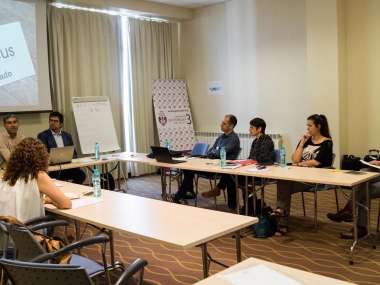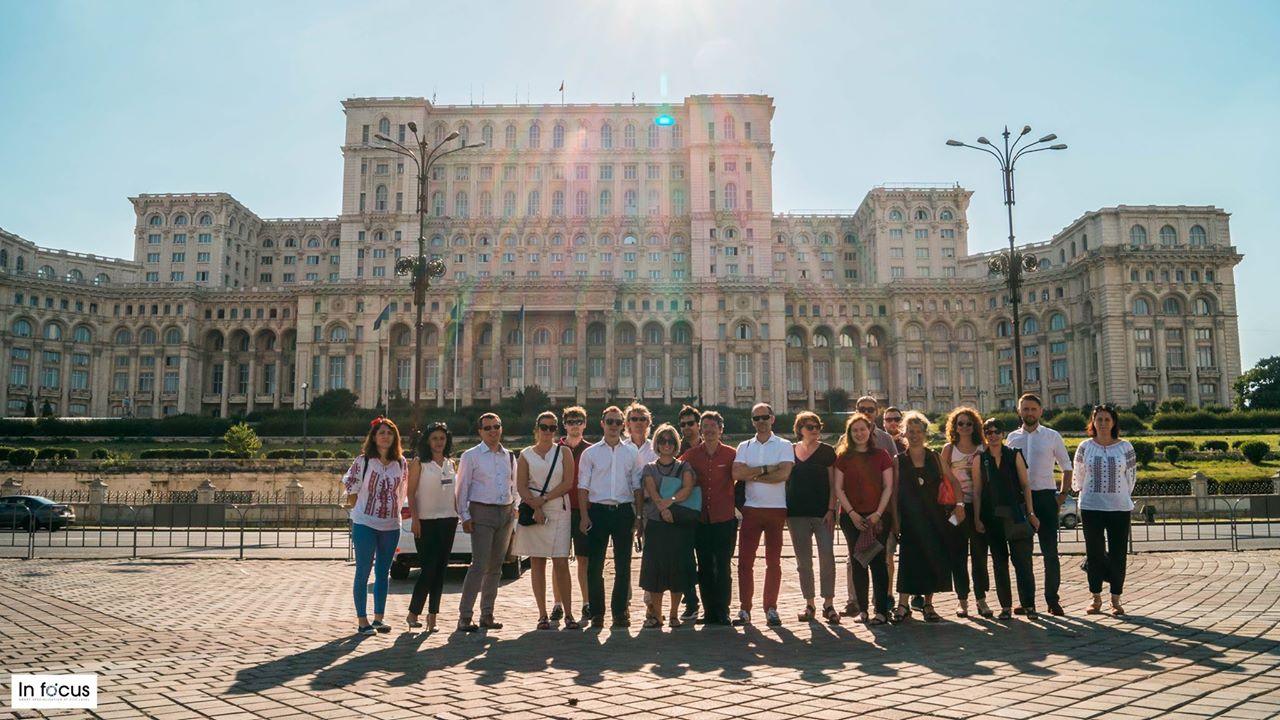Reinforcing the transnational exchange and learning process through an in-depth peer-review
Edited on
18 May 2018URBACT IN FOCUS partners joined in Bucharest last June 27-28 for an in-depth peer-review conceived as ex-ante evaluation of the different Integrated Action Plans to be produced by the participating cities.

As part of the IN FOCUS transnational work plan, the city of Bucharest welcomed the peer-review workshop organised at network level on June 27-28. This peer-review workshop has meant a crucial point for IN FOCUS partnership as all partners had the opportunity to receive important feedbacks, suggestions and constructive inputs from other partners, as well as from the lead and ad hoc experts, on the road to produce the Integrated Action Plans that will led their economic development policies by using the smart specialisation approach.
Placing a peer-review exercise at the equator of the project timeline has proven to be very beneficial, as it worked as a catalyst for the IAP drafting process itself. The peer-review exercise has been a very effective tool in order to focus the approach of the IAP and the perfect opportunity for all the partners to revaluate their position and strategies in the field of smart specialisation.
One of the key elements for the success of this exercise has been the methodology used, both for the previous preparation and for the live deployment of the peer-review exercise, which was highly valued by all partners as it allowed having meaningful and fruitful discussions in Bucharest.
Before the peer-review workshop, all partners were invited to prepare a preliminary draft of their IAP translated into English so that they were accessible to other project partners for the peer review workshop.

The reviewing exercise was organised in a way that all partners had to read in advance the IAP of three other partners. A matrix with the proposal on “Who will read which action plan” was prepared by the Ad hoc Expert. Besides, in order to facilitate the reviewing of the drafts, the Lead Expert prepared a guidance note which included a set of questions to facilitate the revision of other partners’ drafts. This questionnaire was used after the workshop to collect partners’ comments and suggestions on the drafts they were invited to review.
The method for the live peer-review was of the type “role-playing”. Each partner presented its IAP’s main highlights and received feed-back from other partners and experts, who acted according to 5 different roles:
- Presenter of the IAP. This is the only “real” role. The city representative took max. 15m to present their draft IAP.
- Leading local politician: This is the person who decides about the plan on the local/urban level.
- Leading regional politician: This is the person who decides about the plan on the regional level.
- Journalist. This person will ask clarifying and critical questions, keeping things simple and look what’s in it for the citizens of the town and region.
- Company. This person will look at the plan from a business perspective.
The role play method was very helpful in order to evaluate the actions included in the IAPs from the point of view of other actors. In addition, the comparative analysis of other partners’ IAPs was an occasion to think about our cities’ own weaknesses and strengths. Using this method created deeper levels of common understanding among the partners and taking different roles helped to look at an action plan with different eyes, generated new and often unexpected insights. It also helped to improve the quality of action plans and also contributed to the cohesion in the network.
A second peer-review exercise has been planned for the Thematic Workshop in Bordeaux (November 22 - 24). In this second peer-review, all partners will have the opportunity to share their achievements in the production of their IAPs since the peer-review in Bucharest and explain how they have applied the improvement ideas and assessment received on their IAP preliminary drafts.
Submitted by slopez on
